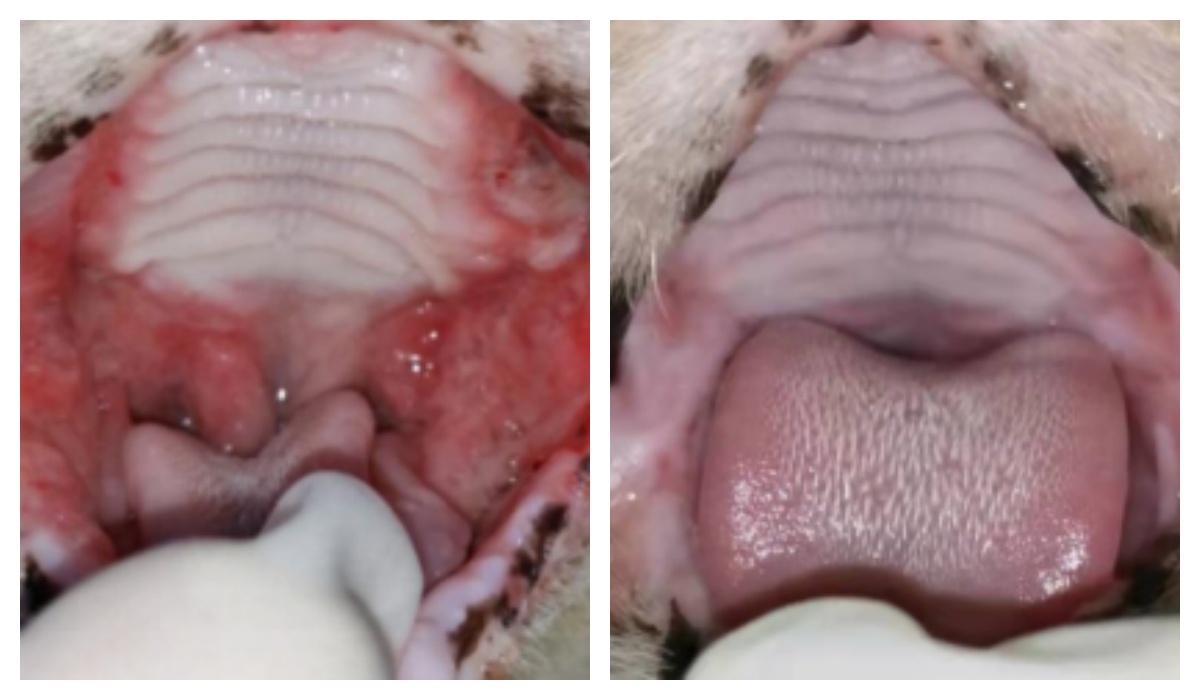Veterinary Laser Therapy for Feline Chronic Gingivostomatitis

1. Background
Oral inflammation in small animals is a complex condition with multifactorial causes, generally classified as infectious and non-infectious:
l Infectious causes include bacterial, viral (e.g., feline calicivirus), or fungal infections.
l Non-infectious causes may involve nutritional deficiencies, immune dysregulation, chronic physical or chemical irritation, or retained tooth roots.
Feline Chronic Gingivostomatitis (FCGS) is a severe, immune-mediated inflammatory condition of the oral mucosa, most commonly affecting the gingiva, palatoglossal folds, and pharyngeal area. It often leads to oral pain, drooling, difficulty eating, and weight loss.
2. Case Information
Name: Momo
Weight: 2.6 kg
Age: 3 years
Sex: Male (neutered)
Condition: Acute inflammation, full oral cavity affected
Medical History: No prior history
Owner Complaint: Refuses dry food, only eats wet food
3. Diagnosis
Chronic gingivostomatitis
4. Treatment
4.1 Initial treatment included pain relief medication, antibiotics, and 3 sessions of physiotherapy laser. However, no significant improvement was observed. Due to persistent inflammatory overgrowth, it was decided to remove remaining root fragments and continue with laser therapy.
4.2 Laser Treatment Protocol:
Device: Lyra veterinary laser
Average Power: 3.6W
Mode: 30mm treatment tip
Treatment Time: 2 minutes 18 seconds per cheek side
Technique:
Cold compress applied first due to swelling and pain
Performed in non-contact mode

Before and after laser therapy images show clear improvement in inflammation and pain relief.
5. Summary
Laser therapy provided significant benefits in managing Momo’s condition:
✔ Reduced pain and swelling
✔ Promoted tissue healing
✔ Improved drug absorption
✔ Non-invasive and well-tolerated
This case highlights the value of veterinary laser therapy as a powerful adjunct in the treatment of feline chronic stomatitis.
